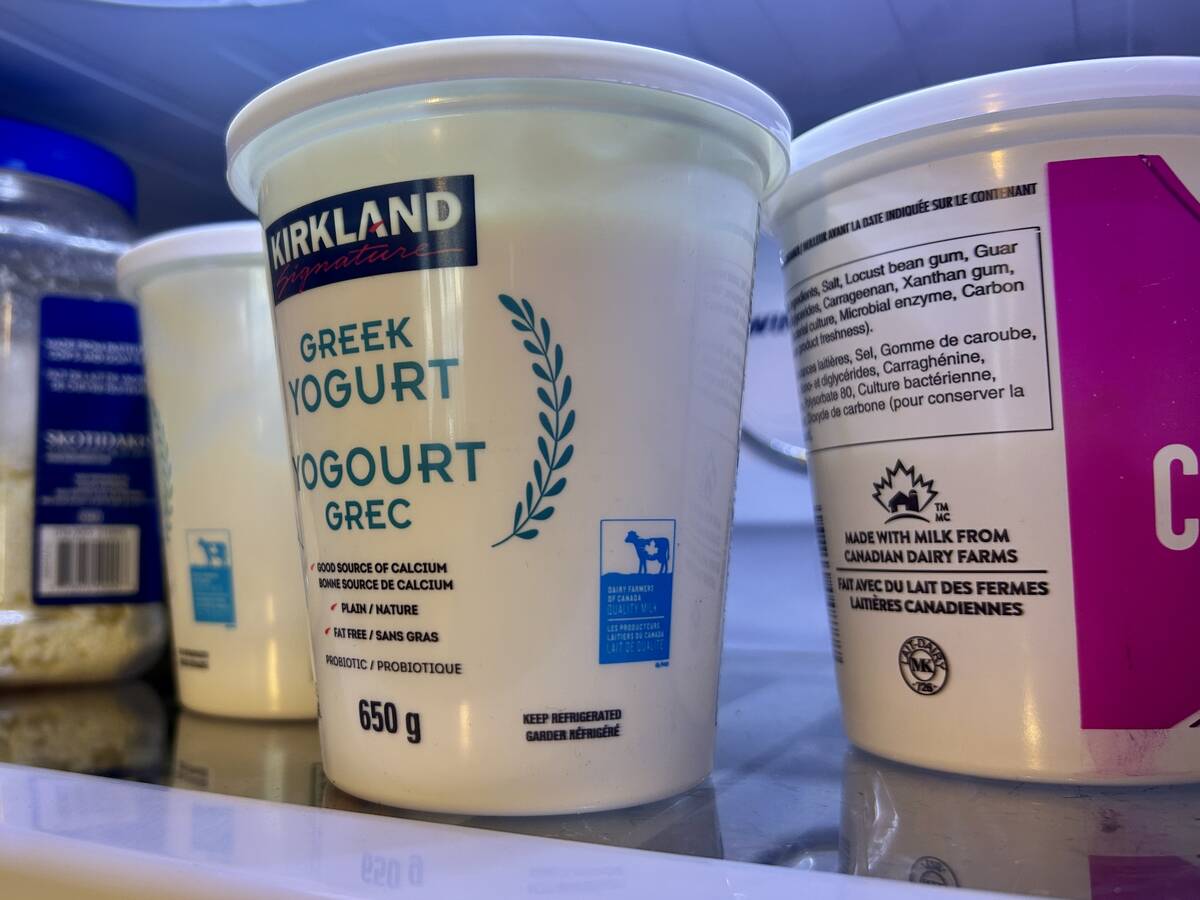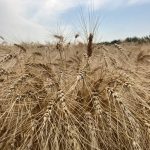Chris and Lindsey Raupers say they started their local milling company, Engrained Flour Co., as part of a passion for providing the public with nutritious whole grain flour.
Regenerative farmers in western Manitoba since 2017, the gateway to grain processing for the farm couple came when they started started milling their own flour for their family’s personal use. Grain was from their own farm, they told attendees at Manitoba Ag Days, where they were one of several local farms presenting their journey into value-added production or direct marketing.
Why it matters: Chris and Lindsey Raupers join the list of regeneratively farming operations that are also skipping the traditional value chain to find market for their products.
Read Also

Big changes ahead for dairy market
Dairy consumers put bigger eyes on protein, while CUSMA review looms large for Canada’s dairy farmers
Today, the Newdale-area couple have taken their operation commercial, selling stone milled red fife flour, whole grain four, sifted hard red spring flour, and whole grain hard red spring flour.
All products made by Engrained Flour Co. are created without fortifying or bleaching.
The aim, the farm couple says, is minimally processed, nutrient-dense flour to be used for baking bread or pastries.
Birth of an idea
The idea for growing, milling and selling their own flour was born when Chris Raupers visited the Canadian International Grains Institute — later merged with Cereals Canada — in Winnipeg in 2018.
“I learned a lot about the process of producing flour in the commercial system across the planet,” he said.
Armed with a Kitchen Aid milling attachment, the Raupers began milling their flour and handing it out in small batches to family and friends.
“It was exciting to see what different kinds of bread loafs they would bring over on any given day. We did many taste tests and recipe adjustments,” Raupers said.
Not long after that, the Raupers upgraded their Kitchen Aid milling attachment, which had quickly worn out, to a counter-top stone mill from Austria. They continued milling flour for their families and friends.
Soon, again, they found they had more demand than ability to produce product with their current facilities. The Raupers bought a shipping container, insulated it, got proper government approval and used it to store, package and label the flour they were now using a contracted local miller to mill.
“However, we knew eventually we wanted more control over the process,” Raupers said.
The miller they had contracted also got too busy to continue milling the farm’s flour.
“It was a good thing in the long run,” Raupers said.
After some research, the couple took the financial plunge and purchased a combination stone mill and sifter of their own from New American Stone Mills in Vermont.
The Raupers chose a stone mill because it is able to mill at lower temperatures, a process argued to remove less nutrients out of flour and thus dodge any need to enrich the product after milling.
“It was also relatively low barrier to entry, cost effective, and was easy to set up,” Raupers said.
After the flour is stone milled, hard red, red fife, and rye flour is sifted for a finer texture.
“It sifts out the large piece of bran and ends up with a flour that is light and fluffy and rises better, as it doesn’t have the large bran flakes to tear at the gluten strands. But most – about 85 per cent – of the wheat kernel remains to keep as much of the nutrition as possible,” Raupers said.
Once the mill was in place, it was time for the Raupers to focus on taking their milling fully from personal to a functioning business. They contracted a local website designer to create a website and launched their brand on Instagram and Facebook.
It wasn’t long before word spread about Engrained Flour Co.’s products, and clients even began reaching out to the Raupers to source their flour.
“This was very exciting for us,” Lindsey Raupers said. “Chez Angela here in Brandon and La Belle Baguette in Winnipeg were both very fast adopters of our flour.”
Navigating how to ship flour across Canada was more of a challenge. Flour is heavy and doesn’t have a high-selling value that would otherwise offset the cost of transport, Lindsey Raupers ntoed. In order to purchase the flour, customers have to pay for some of the shipping costs.
After consulting with other millers in Ontario and B.C., the Raupers began shipping their flour nationwide for a flat fee.
“We wanted to get our product out there to as many people as we could reach, so we initially started subsidizing part of the shipping costs in order to reduce any objection that a purchaser might have,” Lindsey Raupers said.
That flat rate started at $12. Engrained Flour Co. products began to make their way across the country, even all the way to Nunavut. Recently the Raupers also began shipping flour to a provider focusing on fresh, local farm food in B.C.
Troubles on the road
However, the Raupers soon realized that, without a better shipping rate from Canada Post, the practice was not profitable in the long run.
The Raupers are still researching and considering their options to continue shipping beyond their local region.
“We just have to research into a better shipping model. With larger quantities, you get better discounts, so it’s just a matter of getting there,” Lindsey Raupers said.
In the meantime, the business has pivoted to catering to local customers, delivering their products to retailers and large quantities of flour to local bakeries.
Today, the list includes local vendors like Gold Leaf Events in Minnedosa, Heritage Co-op and Twin Valley Co-op in western Manitoba, the Green Spot Home and Garden and Food Rescue in Brandon, G. J. Andrews Food & Wine Shop and Vic’s Market, as well as the Farmer’s Kitchen Grocery Store, in and around Winnipeg and online.
Building connection
One of the most rewarding parts of launching Engrained Flour Co. was the conversations the Raupers have had with customers, Lindsey Raupers said.
“All of them are looking for a product where they know where it comes from … They know that it’s been taken care of, the entire process…there’s zero additives to it, and (they’re) able to trace where their food comes from.”
She also noted the role of social media. Customers sometimes reach out or post pictures of what they’ve baked with the company’s products.
“It’s very rewarding for us to see our product out therein the world being used, literally starting as seeds in the ground…and then growing the crop, milling it. The ultimate reward is when people send us a picture of what they’ve made and enjoyed,” she said.
The business motto of Engrained Flour Co. is grow it, mill it, package it, and sell it, Chris Raupers said.
“The entire process is traceable back to us and our farm, a true description of farm-to-table,” he said.
















